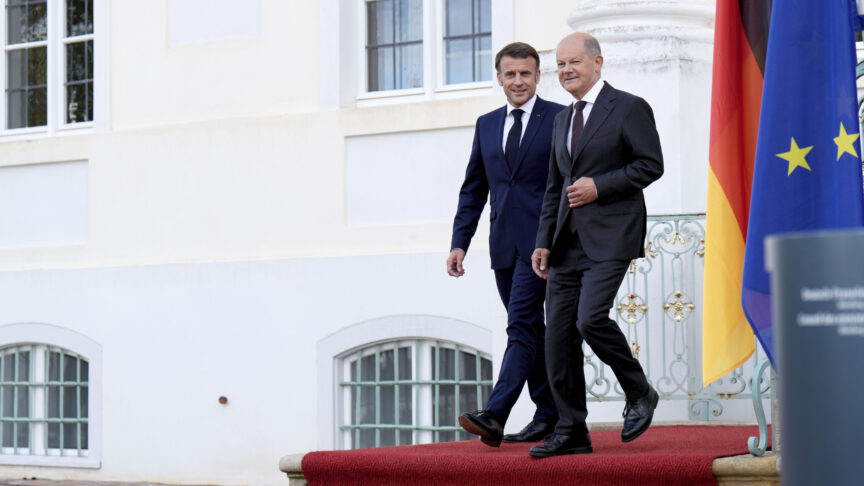View from Berlin: A security lens
Berlin looks at Europe's problems through the prism of security far more than they are usually given credit for
Despite the shock they triggered across the country, the Brussels attacks have not fundamentally altered the debate in Germany. The government expressed its sympathy and support with the Belgian authorities and people and highlighted that this was yet another attack on the EU’s values. But these latest attacks have only cemented the view among Germans that the threat to Europe and to Germany has been imminent for quite some time. As in the aftermath of the Paris attacks in November 2015 the government responded calmly in public statements but strengthened its security measures around airports, train stations, critical infrastructure, and at its borders.
However, what has been different is that in late 2015, in the immediate aftermath of the Paris attacks, Chancellor Merkel and other leading politicians saw the risk of the debate on the attacks becoming contagious, and impacting the government’s liberal refugee policy. Back then, senior government representatives asked the public to differentiate between ISIS-rooted terrorists and refugees of Muslim faith in need of protection. After Brussels, this link was not even raised – a sign of consensus among large parts of German society, and also a reflection of Germany’s increasingly restrictive refugee policy and EU-level solutions.
Germany is in no way downplaying the evolving threats to its security and social cohesion, which is reflected in a number of initiatives and policy decisions lately.
Interior Minister Thomas de Mazière arrived at the meeting with his European colleagues in Brussels 24 March with an agenda highlighting the need for the European Parliament to ratify the agreement on passenger name records. He also called for action to be taken to better link existing data on travel, migration and security; to strengthen the exchange of information between EU countries (blaming without naming a large number of EU countries that he said have failed to deliver so far), and to establish a database to register entries and exits into the Schengen area.
De Mazière also travelled to Egypt in late March to discuss both the fight against terrorism and irregular migration. There has been an increasing debate on Egypt lately as a transition country and country of origin for future migration into Germany. What if a country of the size of Egypt fails to cope, is a question frequently asked in Berlin.
In March the cabinet also agreed on benchmarks for the federal budget framework for 2017 and the financial plan up until 2020, beefing up the budget for the interior and defence ministries, and on official development assistance (ODA). Provided the Bundestag approves the proposal later this year the defence budget will go up by €1.7 billion (or by 6.8 percent) in 2017 to a total of €36.6 billion, and continue to rise to €39.1 billion in 2020. While it will be crucial to assess what this additional funding will actually be spent on, this is a sign in itself and a continued trend reflecting Germany’s growing commitment to strengthening its contribution to international security.
Other EU member states often underestimate the extent to which Berlin is looking at Europe’s domestic, regional and global environment through a security lens today. Most often, Paris is understood to look at Europe’s neighbourhood through its experience of terrorism, and Berlin through a (liberal) refugee policy lens. But this is an overly simplistic view. While Berlin is responding to the challenge of migration with specific measures and interests in mind, it also shares the view with other Europeans that the world, and even more so Europe’s neighbourhood, has become a more dangerous place. The German stance is that a more dangerous Europe also threatens cohesion from within, and requires a different set of policies.
The European Council on Foreign Relations does not take collective positions. ECFR publications only represent the views of their individual authors.


